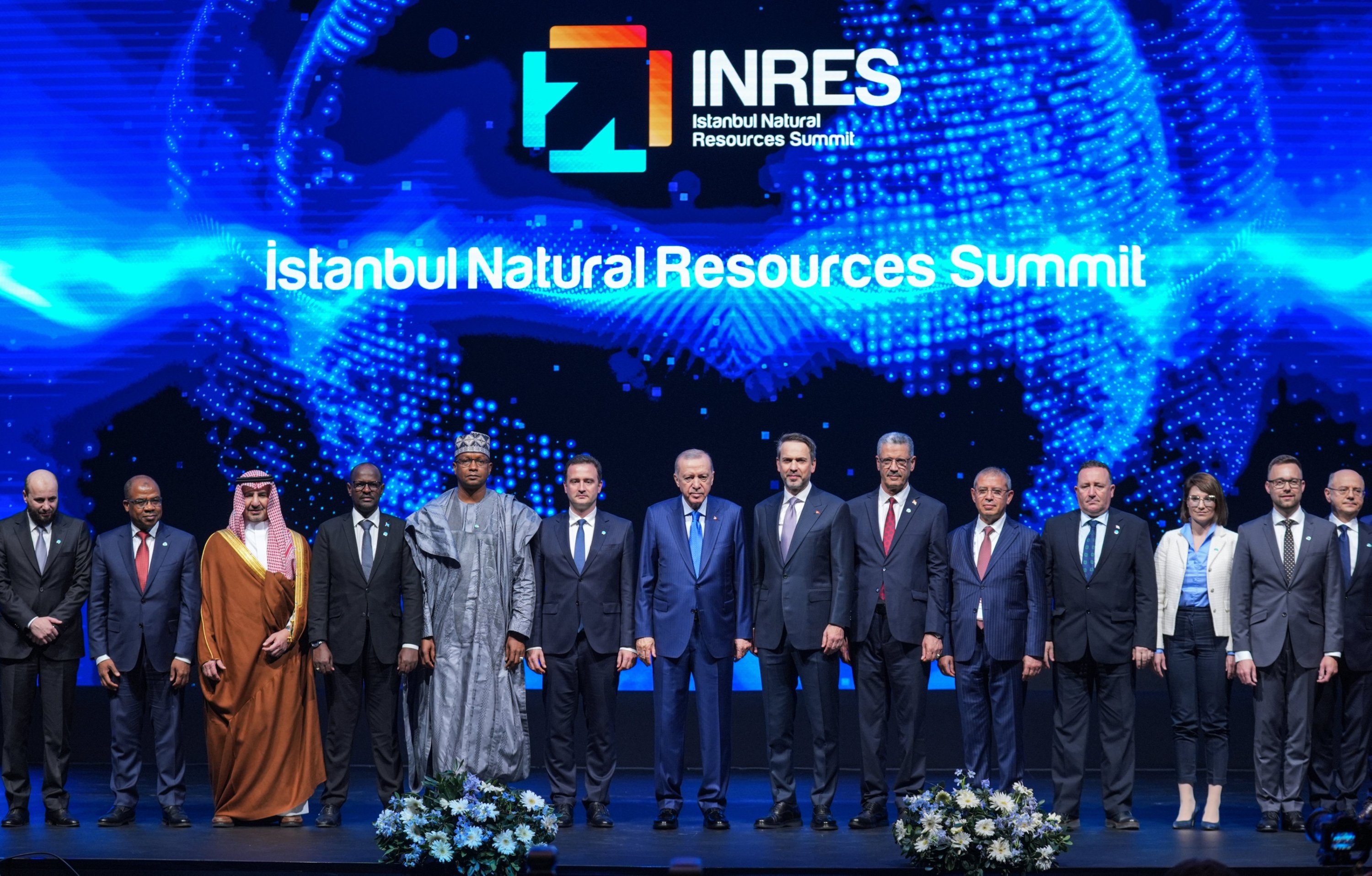© Turkuvaz Haberleşme ve Yayıncılık 2026
In the past couple of months, the city of Istanbul has witnessed the perfect energy and critical minerals diplomacy traffic, hosting major events in all fields of the energy and mining industry from renewables to hydrocarbon, to digitalized energy technologies and much more. Under the auspices of our ministry, we have left behind the Istanbul Natural Resources Summit 2025 (INRES 2025), an event that brought together ministers and global companies seeking to increase energy access and interconnections, and the development of energy resources. Türkiye recognizes the new era of the "critical minerals rush," making this annual event a meeting point for discussion on the future of natural resources, policy construction and the energy transition.
Türkiye has adopted a strategic and internationally attuned approach to energy cooperation, aligning its efforts with local sustainable development goals and actionable priorities. This framework supports both national progress and regional stability, positioning energy as a key instrument for fostering welfare and peace.
I extend my sincere thanks to all the ministers who participated in INRES 2025 and enriched our discussions with their valuable contributions. With the presence of 10 ministers from nine countries, the summit marked a significant milestone in advancing strategic energy cooperation. Under the leadership of our President, H.E. Recep Tayyip Erdoğan, Türkiye has made remarkable progress in the energy sector over the past two decades. Our goal remains steadfast: to stand among the world’s leading energy nations. Embracing a win-win approach, we continue to create shared value – bolstering both our national economy and those of our partners.
During the summit, President Erdoğan announced that the Oruç Reis Seismic Research Ship has completed 90% of its 3D seismic exploration activities off the coast of Somalia. Reaffirming that “we are a nation with no stain of colonialism in its thousands of years of history,” he emphasized the principled foundations of our international energy diplomacy. In this spirit, we are deepening our partnerships with countries such as Pakistan, Indonesia and Malaysia and expanding our cooperation in the energy sector based on mutual respect and shared development.

A tradition we began with the previous event, Istanbul Energy Forum, Ministerial Roundtables hosted by me, has paved the path for open discussions on regional energy diplomacy efforts and developing cooperation and collaboration. Many agreements have followed, making public the continuing efforts of energy ministers around the world with a common goal, to meet the growing energy demand of the world’s population through diversified resources and enhancing energy security. The most recent deal struck between Türkiye and Hungary in the field of hydrocarbon exploration can be noted as the latest agreement signed on the sidelines of these events.
These events are proving increasingly valuable for our region. Now more than ever, we need a unified approach to energy policy. Regional instabilities have reshaped dynamics and, collectively, underscored the urgency of ensuring a more resilient and uninterrupted energy flow from producers to consumers. The recent Turkmen Gas deal has revitalized additional potential for the region, and we hope to see more practical solutions like those mentioned in other areas, too. It was particularly significant to see the Syrian Energy Minister at INRES. We look forward to seeing the Syrian energy systems back on their feet in the near future, and look forward to increasing our bilateral energy trade.
Today, Türkiye is on track to reduce energy import dependency, enhance energy diversification, and increase local energy production. We aim to boost national energy production not only for our own needs but also in support of our partners, helping to keep energy costs low while contributing positively to the reduction of the national current account deficit. With a state-of-the-art deep-sea exploration fleet, Türkiye has emerged as a country with significant potential for international cooperation in the field of hydrocarbons. At the same time, we pursue a balanced and forward-looking strategy across renewables, nuclear energy, and value-added mining. Our technical know-how and on-site expertise offer valuable support for countries seeking to develop their own national energy resources.
Geography should not define our destiny – on the contrary, we must shape the destiny of our geography. We now have a voice in the world with our energy and critical minerals diplomacy!
